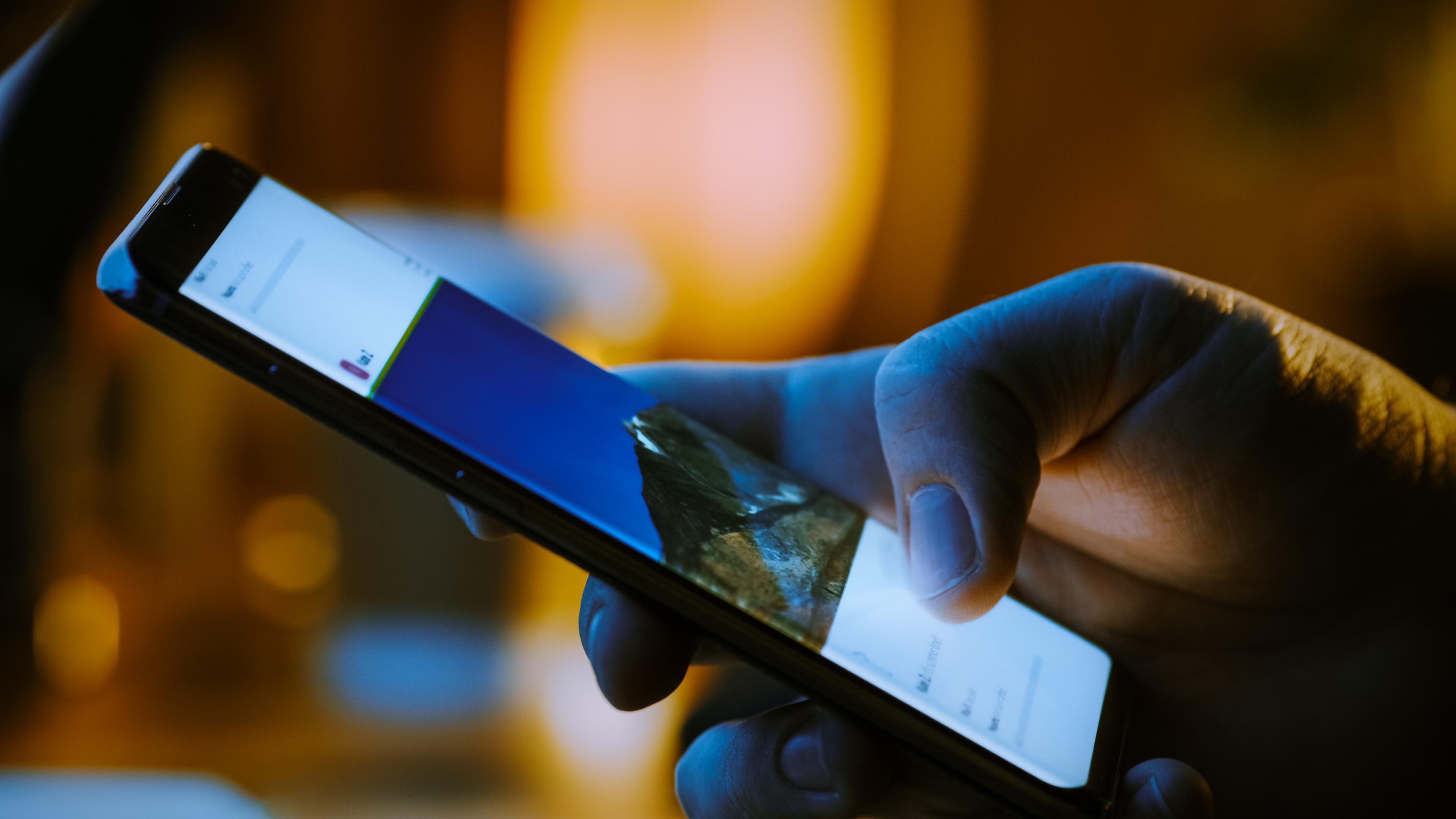What is the Goldilocks Rule for Social Media Use?
Jake Newby
| 4 min read

We check our phones more than 100 times per day. It has become second nature for many of us. Often, when unlocking our screens, we’re doing so to open a social media app. According to data analyzed by Similarweb, a digital data aggregation company,the average American spends 68 minutes per day on the top five social media platforms, equaling almost 5% of their life, or 3.81 years.
These stats seem unhealthy on the surface. They may even make your face a little flush if you resonate with them. Despite all the recent research done on screen time and our country’s growing reliance on social media, there likely isn’t a one-size-fits-all solution on how to handle it. Our phones and to a lesser degree, social media sites (SNS), connect us to almost all facets of life, for better or worse. To use an age-old turn of phrase, you may say we can’t live with them, we can’t live without them.
What is the ‘Goldilocks’ rule for social media use?
The ‘Goldilocks rule of social media very obviously borrows its core principle from the old “Goldilocks and the Three Bears” fairy tale. The idea is that a certain amount of social media time per day can be “just right.” Most can probably agree that less phone time would benefit their mental health. On the other hand, the fear of missing out (FOMO) some feel after enduring long stretches of time without their phones can make people sad. Is there such thing as a moderate amount of screen time that is just right?
The negative impacts of too much social media
First, let’s start with the case for less social media time, and why overusing it is harmful. Social media addiction is listed as a form of behavioral addiction by the addiction center, which that negative mental health and low self-esteem are undeniably linked to social media use. The addiction center also states that an estimated 27% of children who spend 3 or more hours a day on social media exhibit symptoms of poor mental health. In teens and young adults, excessive social media use can evoke:
- Insecurity and a negative perception of their body image
- Increased levels of anxiety
- Disordered eating
- Online bullying
“It can lead to a lot of anxieties if somebody doesn’t return your text message right away or they not let you know where they’re located in the world,” said Dr. Kristyn Gregory, a medical director of behavioral health at Blue Care Network of Michigan and Blue Cross Blue Shield of Michigan. “It can also lead to anxiety that you’re missing out, this whole fear of missing out. If I’m not attached to social media at all times, what am I missing? What are the other kids doing?”
Why quitting social media altogether isn’t that easy
Social media use isn’t inherently detrimental. The negative side effects and supporting points listed above can occur because of social media overuse. From a very basic standpoint, the reason social media was created and developed is why it has become a hub of all things communication, information and entertainment.
The upside of social media isn’t necessarily why we should keep these apps on our phones. As Dr. Gregory alluded to, FOMO can have a negative mental impact on people, especially young adults.
A 2022 study that called for 50 participants to abstain from social media for a week found that while decreasing negative emotions like loneliness, the exercise also decreased positive emotions, too. They determined that the lack of dopamine released because of social media engagement was a big factor.
Finding a balance
It’s hard to argue against setting social media limits, no matter how old you are. Experts in the past have suggested 30 minutes per day, spread across three apps. If your SNS usage far exceeds that amount already, think about taking steps to get it down to an hour or less and see how it works for you. Breaking our brain of such second-nature habits is not easy, but listed below are a few strategies that could help you reduce your amount of social media time, whether it’s three hours to two hours, two hours to one, or one down to 30 minutes. Whatever’s just right for you!
- Prioritize more in-person hobbies, even writing them down at the start of your day to be deliberate about it.
- Put your phone in another room while engaging in hobbies and activities.
- Set screen time limits.
- Refrain from using screens 30-60 minutes before bedtime.
- As long as you don’t require them for work, try deleting most if not all social media apps from your phone during the week, and leave them only on your desktop computer/tablet.
Related:
Photo credit: Getty Images





